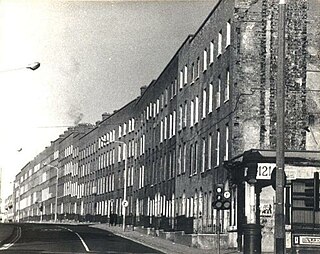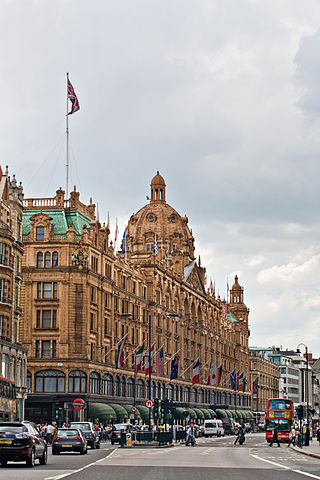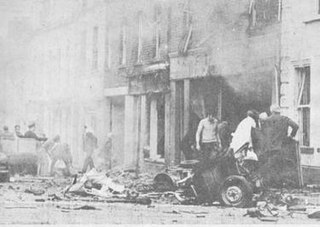Related Research Articles

John David Taylor, Baron Kilclooney, PC (NI) is a Crossbench life peer from Northern Ireland, who has sat in the House of Lords since 2001. He previously served as the Ulster Unionist Party (UUP) Member of Parliament (MP) for Strangford from 1983 to 2001. He was deputy leader of the UUP from 1995 to 2001, and a Member of the Northern Ireland Assembly (MLA) for Strangford from 1998 to 2007.
In the music of Ireland, Irish rebel songs refer to folk songs which are primarily about the various rebellions against English Crown rule. Songs about prior rebellions are a popular topic of choice among musicians which supported Irish nationalism and republicanism. In the 20th and 21st centuries, Irish rebel songs focus on physical force Irish republicanism in the context of the Troubles in Northern Ireland.

The Dubliners were an Irish folk band founded in Dublin in 1962 as The Ronnie Drew Ballad Group, named after its founding member; they subsequently renamed themselves The Dubliners. The line-up saw many changes in personnel over their fifty-year career, but the group's success was centred on lead singers Luke Kelly and Ronnie Drew. The band garnered international success with their lively Irish folk songs, traditional street ballads and instrumentals. The band were regulars on the folk scenes in both Dublin and London in the early 1960s, and were signed to the Major Minor label in 1965 after backing from Dominic Behan who was paid by Major-Minor to work with the Dubliners and help them to build a better act fit for larger concert hall venues. The Dubliners worked with Behan regularly between 1965 and 1966; Behan wrote numerous songs for this act including the song McAlpine's Fusiliers created specifically to showcase Ronnie Drew's gravel voice. They went on to receive extensive airplay on Radio Caroline which was part-owned by Phil Solomon CEO of Major Minor, and eventually appeared on Top of the Pops in 1967 with hits "Seven Drunken Nights" and "The Black Velvet Band". Often performing political songs considered controversial at the time, they drew criticism from some folk purists and Ireland's national broadcaster RTÉ had placed an unofficial ban on their music from 1967 to 1971. During this time the band's popularity began to spread across mainland Europe and they appeared on The Ed Sullivan Show in the United States. The group's success remained steady right through the 1970s and a number of collaborations with The Pogues in 1987 saw them enter the UK Singles Chart on another two occasions.

Monto was the nickname for the one-time red light district in the northeast of Dublin, Ireland. The Monto was roughly the area bounded by Talbot Street, Amiens Street, Gardiner Street and Seán McDermott Street in what would now be called Summerhill. The name is derived from Montgomery Street, which runs parallel to the lower end of Talbot Street towards what is now Connolly Station. Montgomery Street is believed to have been named after Elizabeth Montgomery, who was married to Luke Gardiner, 1st Viscount Mountjoy.

Joseph Ronald Drew was an Irish singer, folk musician and actor who had a fifty-year career recording with The Dubliners.
"Take it Down from the Mast" is the common name of an Irish republican song written in 1923 by James Ryan. Entitled "Lines Written by a Republican Soldier in 1923", it was first published in 1936 in Good-Bye Twilight: Songs of Struggle in Ireland, a collection of songs by Leslie Daiken.
"Mary from Dungloe" is an Irish song originally penned by a County Donegal stonemason Pádraig Mac Cumhaill in 1936, telling a tragic story of love and heartbreak. A modified version of the song was re-released by The Emmet Spiceland Ballad Group and reached number 1 in the Irish singles music chart on 24 February 1968. This success prompted the creation of the Mary From Dungloe International Festival, an Irish music festival held in Dungloe, in northwest Ireland. There exists two versions of the song, the original long version by Pádraig MacCumhaill and a shorter version by Colm O'Laughlin, the latter version is the most popular today.
"The Wild Colonial Boy" is a traditional anonymously penned Irish-Australian folk ballad which tells the story of a bushranger in early colonial Australia who dies during a gunfight with local police. Versions of the ballad give different names for the bushranger involved: some based on real individuals and some apparently fictional. A common theme is romanticisation of the bushranger's battle against colonial authority. According to a report in The Argus in November 1880, Ann Jones, the innkeeper of the Glenrowan Hotel, had asked her son to sing the ballad when the Kelly gang were at her hotel in June that year.
The proxy bomb, also known as a human bomb, is a tactic that was used mainly by the Provisional Irish Republican Army (IRA) in Northern Ireland during the conflict known as "the Troubles". It involved forcing people to drive car bombs to British military targets after placing them or their families under some kind of threat The tactic was later adopted by the FARC in Colombia and by rebels in the Syrian Civil War.
The Flying Column was the name of a Belfast folk group formed around 1967/68 who took their name from the Active Service Units of the Irish Republican Army that fought throughout Ireland during the War of Independence.

St Eunans GAA is a dual club which plays hurling and Gaelic football. Their home ground is O'Donnell Park in Letterkenny. They field 35 teams, making them the biggest club in their county.

The Harrods bombing refers to the car bomb that exploded outside Harrods department store in central London, England, on Saturday 17 December 1983. Members of the Provisional Irish Republican Army planted the time bomb and sent a warning 37 minutes before it exploded, but the area was not evacuated. The blast killed three police officers and three civilians, injured 90 people, and caused much damage. The IRA Army Council said it had not authorised the attack and expressed regret for the civilian casualties. After the bombing, the IRA shifted its emphasis towards attacks on military targets in England.
Pat of Mullingar is an Irish rebel song has been sung and recorded by several folk artists and groups, including the Irish Rovers, Derek Warfield, and The Wolfe Tones. The initial rendition of the song typically featured a portrayal of an Irish carman praising the exceptional attributes of his horse.
Gilbert Norman Potter was a District Inspector of the Royal Irish Constabulary. He was born in Dromahair, County Leitrim, a son of Rev. Joseph Potter, Church of Ireland Rector of Drumlease Parish, and Mrs. Jane Potter. He was stationed at Cahir, County Tipperary, during the Irish War of Independence. In April 1921 he was captured and executed by the Irish Republican Army in reprisal for the British execution of Thomas Traynor, an Irish republican.

Seán McCool was a prominent Irish Republican and a former chief of staff of the Irish Republican Army. Imprisoned on numerous occasions, both North and South of the border, he embarked on a number of hunger strikes in order to secure release. During the 1930s, McCool was one of the few socialists to remain in the IRA after the Republican Congress's decision to split. He stood as a candidate for the Irish Republican party Clann na Poblachta before leaving them as a result of their decision to go into government with Fine Gael.

"The Bold Canadian" was a patriotic song for Canadians that originated during the War of 1812. It celebrated the conquering of Detroit in Michigan Territory.

Naomh Conaill CLCG is a GAA club for the Glenties parish in south-west County Donegal. As well as the town of Glenties, the club also covers the area to the village of Fintown and the areas of Kilraine, The Glen and Maas down to the Gweebara Bridge. Much of this area lies within the Donegal Gaeltacht area. Martin Regan is the current football manager.
Mary Travers was a teacher who was shot dead in Belfast on 8 April 1984 by Provisional IRA gunmen trying to assassinate her father, Thomas, a Catholic magistrate. Mary Travers was about 22 at the time.

On 12 June 1973 the Provisional IRA detonated two carbombs in Coleraine, County Londonderry, Northern Ireland. The first bomb exploded at 3:00 pm on Railway Road, killing six people and injuring 33; several lost limbs and were left disabled for life. A second bomb exploded five minutes later at Hanover Place. This did not cause any injuries, although it added to the panic and confusion in the area. The IRA had sent a warning for the second bomb but said it had mistakenly given the wrong location for the first.
References
- ↑ Osborne, Michael. "Dr. Johnston's Motor Car". Maturins and Johnston. Archived from the original on February 4, 2015. Retrieved February 4, 2015.
- 1 2 "William Gillespie". Finn Valley People. Archived from the original on February 6, 2015. Retrieved February 4, 2015.
- ↑ "IRA's Johnston's Motor Car made famous by The Dubliners found in Donegal after almost 100 years". The Irish News. Retrieved June 7, 2019.
- ↑ Tunney, Paddy (1965). Easter Week and After (liner notes) (PDF) (Media notes). Topic Records. p. 5. TSDL044.